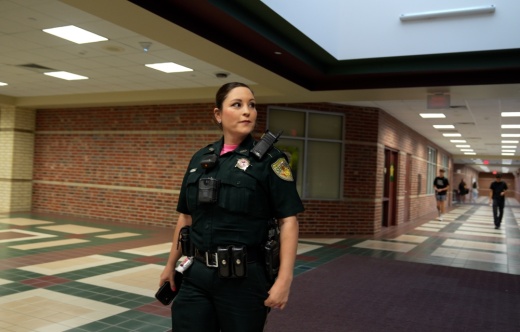Meanwhile, local officials are hoping for funding to come through in some capacity for several key capital projects, such as the Grand Parkway extension to I-45 and the Texas Coastal Barrier Project.
Local legislators have already filed dozens of bills for consideration in this year’s legislative session, some of which relate specifically to issues at hand for the Bay Area. Many other bills filed ahead of the new legislative session have implications for the entire state, such as those related to reducing or eliminating property taxes.
The overview
For Bay Area legislators, priorities for the 89th legislative session include immigration, additional restrictions on lobbying and campaign-related funds, and penalties related to sexually explicit material created with artificial intelligence, according to bills filed in the Texas Legislature.
Statewide, legislators are focused on a number of issues, including property tax reduction, school voucher programs and funding for various educational topics, including student safety, according to filings.
Officials with Clear Creek ISD are looking for allotment increases for school safety and special education, Chief Communications Officer Elaina Polsen said. Other items such as insurance for storms and teacher salaries are also on the district’s agenda.
Meanwhile, League City officials are hoping to make progress on the timeline and funding for the Grand Parkway extension, which will go through the city’s west side. However, no bills filed as of Dec. 19 deal directly with the extension.
Some key numbers to keep in mind ahead of the session include:
- $20B in surplus revenue for state
- 1,500+ bills filed in first month
- 140 days for regular session
- 9.9%, or 1,296 of the 13,090 bills filed in the 2023 regular session became law
School districts are looking at the Legislature to fund several items in the 2025 session.
Officials from CCISD and other Galveston County-based districts said at a Dec. 2 meeting with state representatives they want the state to pass legislation that will increase the student safety allotment, which the Legislature increased by $0.28 per student in 2023, and gave an additional $15,000 per campus, Community Impact previously reported.
Other changes include adjusting state code to give teachers more support in dealing with disruptive students and grant funding opportunities for behavioral placement programs, per CCISD documents.
CCISD saw an uptick in funding for security and monitoring in fiscal year 2023-24 due in part to an additional $1 million from the state that fiscal year, budget documents show. However, those numbers don’t include possible projects funded by bonds over that time.
Also of note
In broader funding efforts, several school districts across the state are seeking an increase to the state’s per-student allotment, which has sat at $6,160 since 2019, according to the Texas Education Agency.
Bills in 2023 that would have increased the allotment or provided funding for public schools failed in most instances, Community Impact previously reported.
However, CCISD officials said the district generally does not have funding issues and none of its current programming is dependent on what the state opts to fund.
Despite this, officials are still eying funding in a number of key areas, including special education, teacher and employee pay, and help with insurance premiums for districts at higher risk along the state’s coastline.
For special education, which has turned into a growing need for school districts, CCISD Superintendent Karen Engle said in a meeting with other districts and representatives on Dec. 2 that she anticipates the district to spend an additional $9 million on special education compared to what the state provides.
State Rep. Greg Bonnen, R-Friendswood, said at the Dec. 2 meeting that funding of safety, teacher pay and special education will provide schools with more money but wouldn’t address the basic allotment specifically.
“Everybody wants the basic allotment to go up, but then you want funding for all these other items, so how do we do that?” Bonnen said. “By definition, [that funding] is not going into the basic allotment. You’re still getting it, but you’re not getting it through that avenue of employment.”
What residents should know
League City, which is the largest city in the Bay Area with more than 120,000 residents, has two main priorities this session, Mayor Nick Long said.
Long said the “absolute, biggest priority” is pushing for more diligence and progress on the Grand Parkway extension through League City, which is currently slated to begin around 2027 and be done around 2030, according to documents from the Texas Department of Transportation. Long said the project has “languished” for years and he wants to see progress on the timeline and funding allocation. He called it the most “impactful” item and believes it will be a key factor in the city’s development of the southwest side of town.
The city is expected to use $6 million from its 2019 bond to help pay for the extension, according to the city’s website.
Long also said the city is supporting a bill authored in part by Sen. Mayes Middleton, R-Galveston, to end taxpayer-funded lobbying.
“[The Grand Parkway project] is probably where 95% of our energy goes at the state level," Long said. "We’ll certainly be looking at other stuff, but that one is by far the biggest."
Sorting out the details
Bay Area legislators have voiced some of their top priorities for education, including school vouchers. State Rep. Terri Leo Wilson, R-Galveston, at the Dec. 2 superintendent meeting said she believes the lack of support for school vouchers in 2023 caused some public school funding to be lost. In many cases, additional funding was tied to such bills. Leo Wilson as of Dec. 19 has filed 38 bills, which include topics dealing with immigration; diversity, equity and inclusion; and lobbying and campaign finance restrictions, among other topics.
State Rep. Dennis Paul, R-Clear Lake, has filed four bills as of Dec. 19, according to bill filings. One such bill relates to the Gulf Coast funding account, which would set aside money for various Gulf Coast protection projects.
Middleton is author of or party to 69 separate bills as of Dec. 19, dealing with topics including school allotments, various civil and criminal penalties, and observing daylight savings time year-round, according to filings.
Some notable bills across the state include:
- House Bill 351, from Vikki Goodwin, D-Austin, which would increase the basic per-student allotment
- HB 165, from Cody Vasut, R-Angleton, which would create a committee and find a way to eliminate property taxes in Texas
- House Concurrent Resolution 35, from Claudia Ordaz, D-El Paso, which would push U.S. Congress to make spacesports eligible for tax-exempt private bonds
- HB 212, from Briscoe Cain, R-Deer Park, which would reimburse families for private school tuition costs through public school funding
- HB 1009, from Mike Olcott, R-Aledo, which would require the Ten Commandments to be displayed in classrooms
- HB 183, from Jared Patterson, R-Frisco, which would allow parents to ask the State Board of Education to review books they find inappropriate
- House Joint Resolution 80, from Ana-María Ramos, D-Dallas, which would allow patients and doctors to decide if abortion is necessary
The legislative session for 2025 begins Jan. 14 and runs through June 2, according to the Legislative Reference Library of Texas.
However, Gov. Greg Abbott has the ability to call for a special session following the 140-day period, according to state documents. Those sessions would focus on specific topics and can last for up to 30 days. The governor can call for multiple special sessions.
There were four special sessions called in 2023 following the regular period. Those ran from May to December, state documents show. Community Impact previously reported those special sessions in 2023 were called to tackle legislative priorities Abbott felt weren’t addressed in the regular session.
Hannah Norton contributed to this article.







